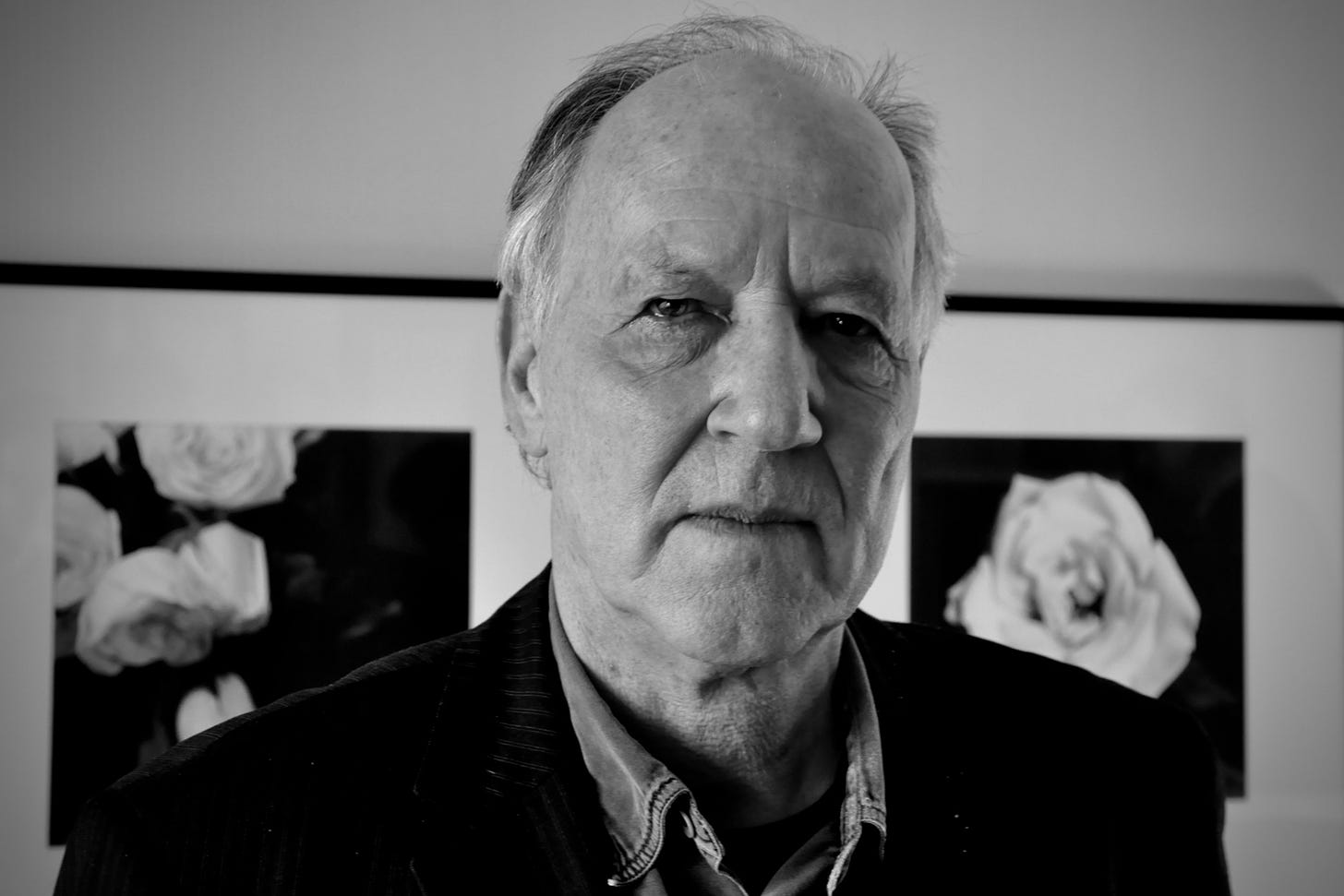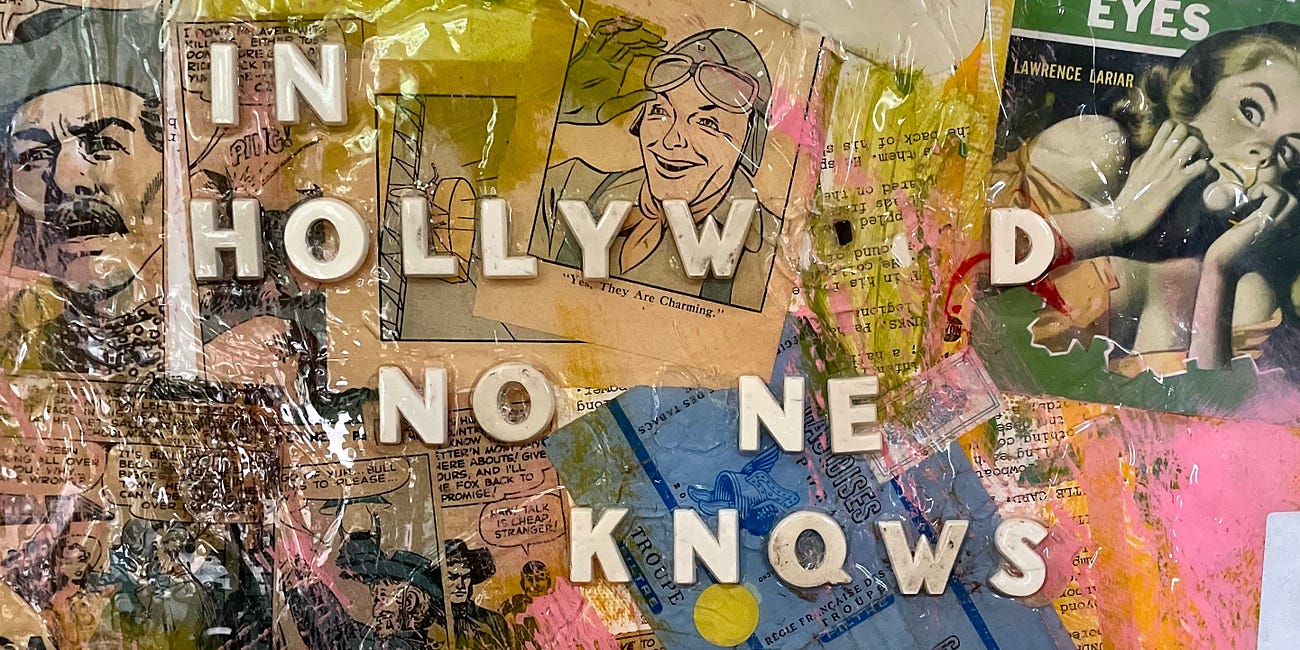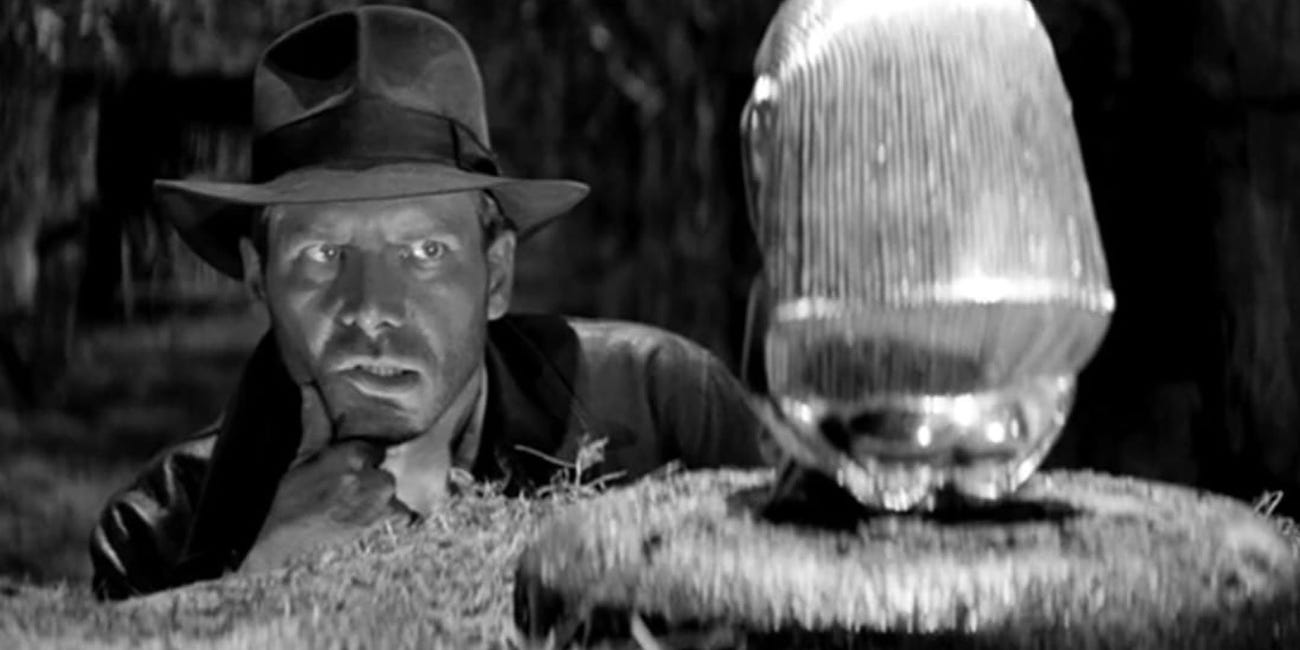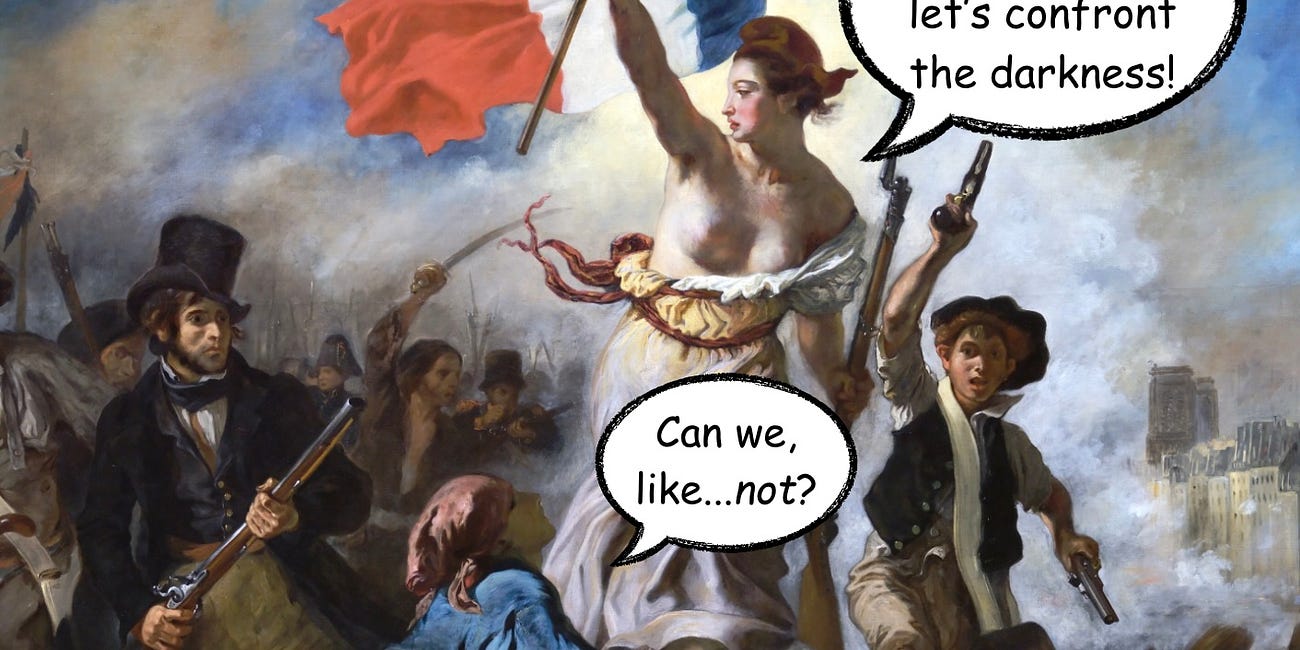F@ck Your Facts: Werner Herzog's Theory of Ecstatic Truth
One of our greatest living filmmakers has long advocated that clinging to facts gets in the way of finding meaning in 'true stories' (and life)

Werner Herzog is one of the biggest personalities in cinema. At eighty-one years old, he’s directed more films (features and documentaries) than I will likely ever be able to watch, acted in many more, written several books, and become so iconic that he is endlessly parodied – sometimes even by himself. Calling myself a fan of his would be an understatement. Today, I want to share with you his theory of storytelling, which informs every work of art he creates. It involves an idea he describes as ecstatic truth, which is a rejection of facts in favor of a greater truth.
Or, as the author André Gide once wrote, “I modify facts to such a degree that they resemble truth more than reality."
Well, maybe not.
Herzog quite often explains his philosophy by citing this Gide quote, but no one has ever been able to source it. When Herzog has been challenged about this, he likes to say some version of, “I may have made it up.”
And there you go: Herzog’s ecstatic truth as a kind of performance art predicated on a lie to express a deeper truth.
I bring up ecstatic truth because it echoes something I have been preaching to artists for years:
“Don’t let facts get in the way of the truth.”
When I interview artists for 5AM StoryTalk’s conversation series, I ask those who are writing or famously wrote “true stories” about their artwork’s relationship to the truth and even how they feel about facts and truth with regard to storytelling. For example, what is their obligation to the facts when developing and writing such “true stories”? Answers always vary. Cultural backgrounds can impact opinions, too. But at the end of the day, most seem to agree that facts all too often distort the truth of an event.
This is the heart of Herzog’s problem. He believes clinging to facts prevents us from being able to understand what something means. I tend to agree.
Here's something he said on The New Yorker Radio Hour last year1:
“It's very complicated, but ecstatic truth, I coined this term – I think I coined it – has to do with a different approach to truth. Number one, nobody knows what truth exactly is. Neither the philosophers are in consensus, nor is the Pope in Rome, nor are mathematicians, or whoever. We have to be very cautious … There's a school in filmmaking, the so-called cinéma vérité, it claims truth in its very essence, but it's fact-based. It's fact, fact, fact. I keep saying, facts do not illuminate us.
“The Manhattan phone directory, four million correct entries do not illuminate us. We do not know why is James Miller, and there are probably 200 different James Millers with correct address, and so why is he crying in his pillow every night? We do not know that. That's my approach that is beyond or outside of facts, and it requires stylizations. It requires somehow shaping, creating something like poetry, a sense of poetry that gives us an approach into truth.
“Truth, I understand, is something vaguely somewhere at the horizon. It's out there. I'm fairly sure. The intense quest for it and search for it, the approach to it is worthwhile, and that's what I'm doing in films and in literature and in everything I do.”
This distinction between facts and truth might sound like unhelpful philosophical hooey-flooey to some of you, but art is about trying to discover the truth, isn’t it? Or at least that’s my understanding of it after spending my life in the service of art. Facts are something you recite like the names of French monarchs, the dates of famous battles fought by Ancient Greece, or how many crimes Donald Trump has been charged with and/or convicted of. They can be enumerated. They can be memorized. But truth? Well, that requires a different kind of interrogation…and that’s where art comes in.
This isn’t to say that I wholly disagree with Cinéma Vérité as a way to explore historical subjects and real-life events/people in general, but the theory strikes me as inadequate to the task of revealing anything that might illuminate the human experience. As I said earlier:
“Don’t let the facts get in the way of the truth.”
You can read a comprehensive explanation of Herzog’s theory of ecstatic truth in storytelling in this essay he penned on the subject, “On the Absolute, the Sublime, and Ecstatic Truth”. It’s quite an extraordinary document.
I’ll close by also sharing with you Herzog’s “Lessons of Darkness”2, a much more abbreviated explanation of his theory of ecstatic truth as shared with Roger Ebert in 1999. As you’ll see, it’s a list of predictably riddle-like Herzogisms best read in his voice - a mixture of wisdom and trickster playfulness, which is par for the course with him. But there are some great nuggets of storytelling wisdom here.
"LESSONS OF DARKNESS"
Minnesota declaration: truth and fact in documentary cinema
1. By dint of declaration the so-called Cinéma Vérité is devoid of verité. It reaches a merely superficial truth, the truth of accountants.
2. One well-known representative of Cinéma Vérité declared publicly that truth can be easily found by taking a camera and trying to be honest. He resembles the night watchman at the Supreme Court who resents the amount of written law and legal procedures. "For me," he says, "there should be only one single law: the bad guys should go to jail."
Unfortunately, he is part right, for most of the many, much of the time.
3. Cinéma Vérité confounds fact and truth, and thus plows only stones. And yet, facts sometimes have a strange and bizarre power that makes their inherent truth seem unbelievable.
4. Fact creates norms, and truth illumination.
5. There are deeper strata of truth in cinema, and there is such a thing as poetic, ecstatic truth. It is mysterious and elusive, and can be reached only through fabrication and imagination and stylization.
6. Filmmakers of Cinéma Vérité resemble tourists who take pictures amid ancient ruins of facts.
7. Tourism is sin, and travel on foot virtue.
8. Each year at springtime scores of people on snowmobiles crash through the melting ice on the lakes of Minnesota and drown. Pressure is mounting on the new governor to pass a protective law. He, the former wrestler and bodyguard, has the only sage answer to this: "You can´t legislate stupidity."
9. The gauntlet is hereby thrown down.
10. The moon is dull. Mother Nature doesn't call, doesn't speak to you, although a glacier eventually farts. And don´t you listen to the Song of Life.
11. We ought to be grateful that the Universe out there knows no smile.
12. Life in the oceans must be sheer hell. A vast, merciless hell of permanent and immediate danger. So much of a hell that during evolution some species - including man - crawled, fled onto some small continents of solid land, where the Lessons of Darkness continue.
If this article added anything to your life but you’re not up for a paid subscription, please consider buying me a “coffee” so I can keep as much of this newsletter free as possible for the dreamers who couldn’t afford it otherwise.
If you enjoyed this particular article, these other three might also prove of interest to you:
https://www.wnycstudios.org/podcasts/tnyradiohour/segments/werner-herzog-ecstatic?tab=transcript
https://www.rogerebert.com/roger-ebert/herzogs-minnesota-declaration-defining-ecstatic-truth







The conflict between facts and the truth is a conflict between art and the sciences. Sciences are based around the search for and the achievement of verified truth, whereas art typically does not allow truth to stand in the way of storytelling.
Up until literacy became common, the majority of stories told were of an oral variety that could change extemporaneously based on who was telling the story and what was included. Modern fictional narratives are the descendants of those tales, built on the same principles.
I like that bit about Jesse Ventura. I bet he and Herzog would make a great team.